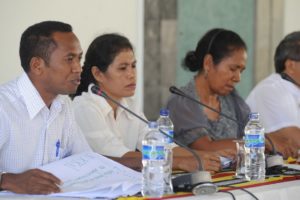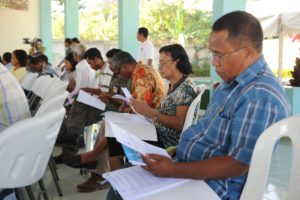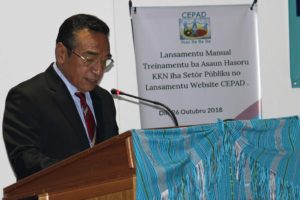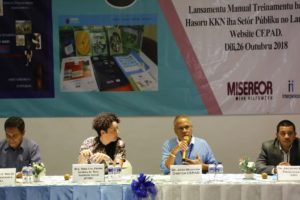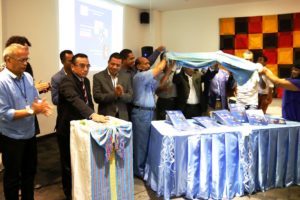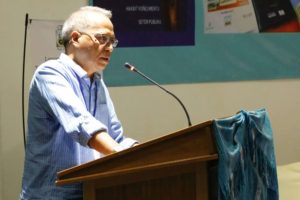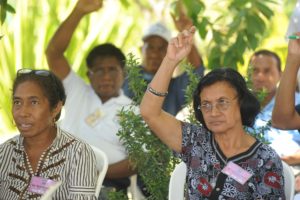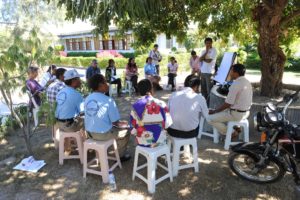Stepping stone to build sustainable peace in Timor-Leste – Launch of anti-corruption manual
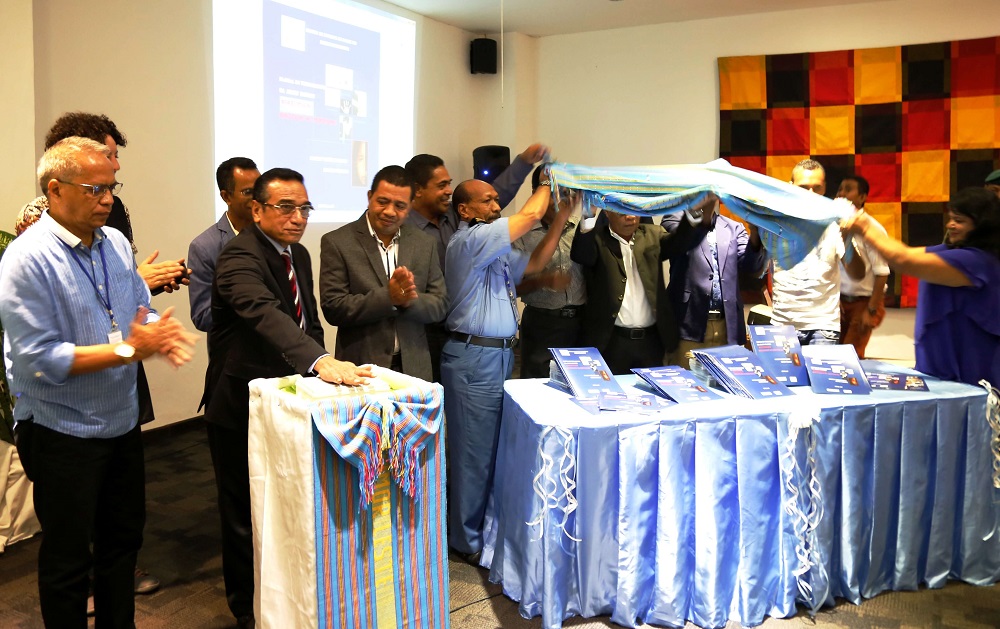
Interpeace and the Centre of Studies for Peace and Development (CEPAD) have been working together since 2007, supporting peacebuilding processes in Timor-Leste. This initiative began in response to the violent political crisis of 2006 which revealed the fragility of a young nation and the challenges of adopting a new system of state structures, while healing past wounds.
Interpeace and CEPAD have used Participatory Action Research (PAR) to help break cycles of violence and create a safe environment where the Timorese can identify and address priority issues in a non-violent and sustainable manner. After years of sustained engagement at all levels of society, CEPAD is now considered the “go-to” organization for anti-corruption and is recognized for promoting inclusive democracy by providing safe spaces for community dialogue.
- Timor-Leste. Photo credit: Steve Tickner
- CEPAD Timor-Leste. Photo credit: Steve Tickner 2009
On 26 October 2018, CEPAD launched a new website et Anti-Corruption Training Manual for public officials. President of Timor-Leste, Francisco Guterres “Lú-Olo”, inaugurated the event celebrating CEPAD’s achievements and acknowledging the importance of fighting corruption in the country: “Corruption creates obstacles to peace and development, it’s critically important that we work to eradicate and reduce it. If we do nothing or if we close our eyes and not report it, because the person who is corrupt, is a family member or a friend, or because we ourselves want to withdraw some benefit, this disease will continue to spread and annihilate our dignity as human beings and as nation.”
The Anti-Corruption Training Manual was developed in consultation with members of CEPAD’s National Advisory Group consisting of seven line ministries including key state anti-corruption institutions to help increase public servant’s knowledge on the roles and responsibilities of state anti-corruption institutions and UNCAC Convention with practical guidelines for public servants to prevent and address corruption in the public sector. It provides information about the types of corruption, the impact of corruption in the country and the responsibility of key anti-corruption institutions. It complements a manual launched earlier on citizens’ rights to information. In this regard, the two manuals cover two important aspects to fight corruption: providing citizens with the knowledge about their rights to request and obtain information, and the duty and responsibility of public officials to provide this information properly. “Every citizen should know his rights well and know how to have access to the public services that the State of Timor-Leste makes available today and, in the future,” expressed President Guterres “Lú-Olo”.
- CEPAD Launch event on October, 2018.
- Photo credit: CEPAD
Nation-wide consultation process
Our first initiative, the Programme of Research and Dialogue for Peace (PRDP), developed from 2007 – 2009, was a nation-wide consultation process, implemented to identify peace related needs and concerns throughout the 13 districts of Timor-Leste. Over 900 people from all sectors and levels of society participated in this research, which ultimately identified the main obstacles to lasting peace in the country: a.) the ineffective formal judicial system and the culture of impunity; b.) the promotion of individual and party interests over the national interest; c.) the need for a common narrative of the history of the resistance and the occupation, and; d.) corruption, collusion and nepotism. These research findings helped set the national peacebuilding agenda.
As a result of this consultation process, “Peace Houses” were established by CEPAD to provide safe spaces for residents to meet peacefully and resolve differences. This initiative has helped lay the foundations for lasting peace within and between communities. Currently CEPAD manages six Peace Houses throughout Timor-Leste.
Understanding resilience as defined by the population
In 2014, Interpeace and CEPAD worked on the Frameworks for Assessing Resilience (FAR) programme to develop tools that would help deepen the understanding of resilience as defined by the population. The project focused on identifying the positive capacities that contribute to resilience, rather than the sources of fragility of a country affected by violence. In Timor-Leste a broad cross-section of people from different sectors of society participated in this project, including: government officials, security forces, religious representatives, political parties, women, and youth groups, from different regions. Through the findings of this research, recommendations and actions plans were developed to understand what resilience for peace looks like and how it can be strengthened in Timor-Leste.
We are proud to continue working with CEPAD fostering inclusion and long-term social empowerment.
To learn more about the work developed in Timor-Leste, visit their newly launched website, which contains publications, manuals, videos, news, reports and more.
- Timor-Leste. Photo credit: Steve Tickner
